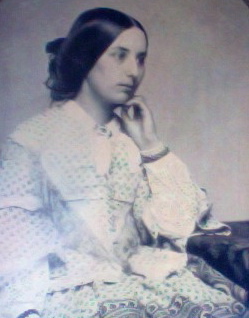A nice scene in Bright Star (2009), by Jane Campion, has the poet John Keats (Ben Whishaw) choosing to knock on a wall behind which is the bedroom of Fanny Brawne (Abbie Cornish), who hears the knock. Then Fanny herself, drawn to Keats, knocks back, with no other response forthcoming. Shyly neither knocks again, or tries to communicate with words. This physical separation between the two will become forced and lengthy as time goes on. A love affair develops, and Keats implacably becomes everything to Fanny; but the couple is parted for long periods of time.
Fanny—the film is more about her than about Keats—is a proud, sometimes haughty dressmaker, who is usually even-tempered and who loves her mother and siblings. And she gets to love Keats against all odds—such as John’s illness and his skeptical best friend, Charles Armitage Brown—but, woefully, she cannot keep Keats. He travels to Italy for the sake of his health. His illness kills him. Critic Dana Stevens is right that “Campion captures the narrowness of most people’s social worlds [in the early 19th century],” and in her narrow social world Fanny suffers continually. Though beautiful, Bright Star is an utterly sad film about defeat. There is little light at the end; life here seems like a cheat. All the same, the film isn’t too gloomy.
In an earlier review of the work, I praised the performances of Cornish and Whishaw. They’re not the only ones, though, who convince as 19th century figures, for the instincts of Paul Schneider (as Brown) and Kerry Fox are also winningly sure. Cornish owns the part of Fanny, especially when she’s lost in anguish. Whishaw never takes a false step. The music by Mark Bradshaw is delicate, the cinematography by Greig Fraser is incisive.



